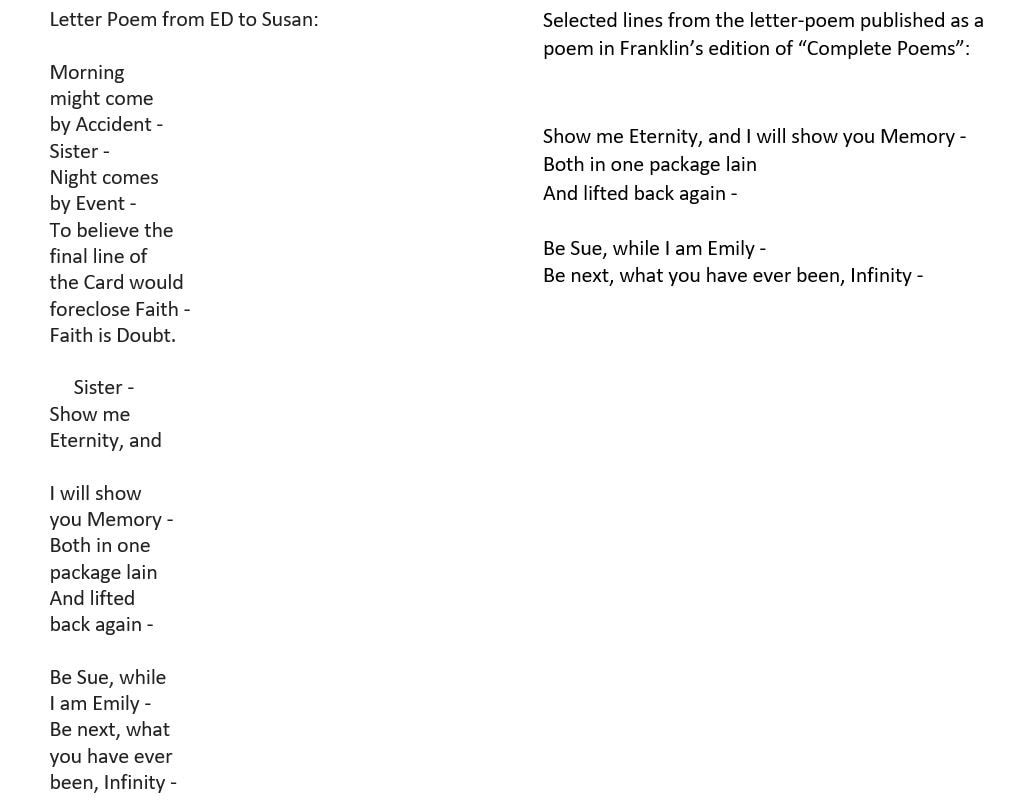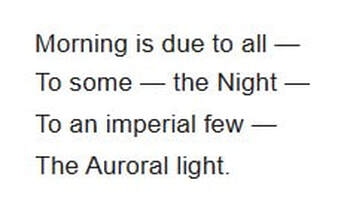Last week I participated in the first of five monthly Zoom discussions about Dickinson’s poetry sponsored by the Emily Dickinson Museum, and for the most part, we discussed the representation of time vs. temporality (one’s sense of the passage of time) in Dickinson’s poetry.
One work we discussed was a “letter poem” (i.e., a letter in the form of a poem) from Dickinson to her sister-in-law Susan. This work can be seen HERE.
Interestingly, the second half of the letter is published alone as a stand-alone poem in Franklin’s edition of Dickinson’s “Complete Poems” (it’s not in the Johnson edition at all) – I’m not sure why the entire poem wasn’t published as a singular poem.
That idea – that “there are no guarantees” – made me think of Dickinson’s “The soul should always stand ajar” – and I gotta say, the second stanza of that poem seems so ominous and eerie to me – that an uncaring God would be willing to slide “The Bolt unto the Door” to shut a soul out of Heaven.
Interestingly, Dickinson has a short poem that begins “Morning is due to all,” which seems to state the opposite of “Morning might come by Accident”; however, the idea of “no guarantees” certainly pops up in line 2, “To some – the night.” And that finicky Almighty (though not all loving) Father surfaces again with his preference for the “imperial few.”
| Back to that letter poem: “Morning might come by Accident - Sister - Night comes by Event - To believe the final line of the Card would foreclose Faith - Faith is Doubt.” What comes to mind concerning “the Card”? Some people in the group discussed possible interpretations as to it being a playing card or Tarot card. I checked the online Dickinson Lexicon to see how Dickinson used the word “card” in her poetry (but of course, “Morning might come by Accident” does not appear as a poem in either Franklin or Johnson). |
What are your thoughts on all of this? “Morning might come by accident” vs. “Morning is due to all”? And what type of “card” do you picture in your mind?


 RSS Feed
RSS Feed
